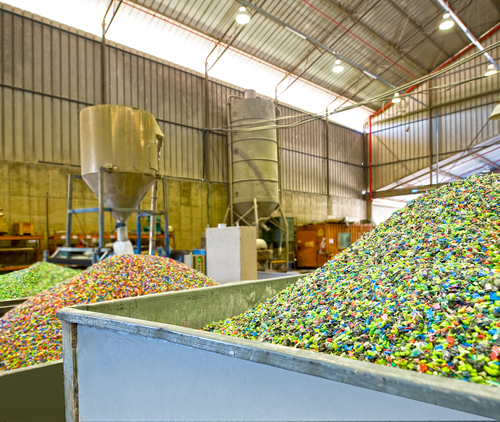
The Pennsylvania General Assembly should approve legislation designed to help advanced recycling of waste plastics in the state, the Pennsylvania Manufacturers’ Association (PMA) stated in a recent blog post that highlighted the benefits to the state’s economy and environment.
House Bill 1808, which was introduced last year by state Rep. Ryan E. Mackenzie (R-Lehigh/Berks), would change the regulatory classification of waste facilities to manufacturing plants, which would encourage investment in the burgeoning recycling industry.
“This is another example of how market-based solutions can create jobs while being good stewards of nature,” PMA President and CEO David N. Taylor said. “Advanced plastics recycling will help reduce litter, in much the same way that natural gas production has helped reduce air pollutants.”
The legislation also clarifies that the new facilities would be fully compliant with all Department of Environmental Protection and Environmental Protection Agency permitting requirements.
The new recycling businesses use a thermal decomposition process (pyrolysis) to transform the plastic waste into feedstock for new products. Pyrolysis occurs in a closed system. No oxygen is burned, and no emissions are created. In the process, the molecular structure of the plastic waste is transformed, and the resulting virgin product can be used as feedstock for other products or even low sulfur fuel.
“While this technology may be new to Pennsylvania, across the country, private companies are already manufacturing post-use plastics at a commercial scale into a versatile mix of new chemicals, feedstocks, products and more environmentally friendly transportation fuels,” said Abby Foster, president of the Pennsylvania Chemical Industry Council (PCIC). “For example, Shell Chemicals is using a liquid feedstock made from plastic waste, supplied by Nexus Fuels, in its chemical plant in Norco, LA to make a range of new products.”
In April, Foster said, Pennsylvania made the short list of a search by Brightmark Energy to land a $1 billion advanced plastic recycling facility, expected to manufacture 200,000 tons of waste plastics annually into new products.
Additionally, ReFined Plastics, LLC, a Montgomery County company, is looking to develop the former Titus Generation Station in Berks County into an advanced plastics recycling facility.
According to the American Chemistry Council, converting just 25 percent of the recoverable post-use plastics in Pennsylvania could support 10 advanced recycling manufacturing facilities, resulting in $314 million in new economic output annually.
While certain environmental groups oppose the legislation, arguing that it does not move society away from plastics, Mackenzie states that the bill’s enforcement would not only reduce the amount of waste sent to landfills, but the recycling process is carbon neutral.
“Advanced recycling helps both the environment and our economy by providing jobs for Pennsylvanians and taking plastics out of our waste stream” Mackenzie said, according to the PMA bulletin. “HB 1808 would update our permitting process to keep our state up-to-date with developing industries to continue innovation in the marketplace.”